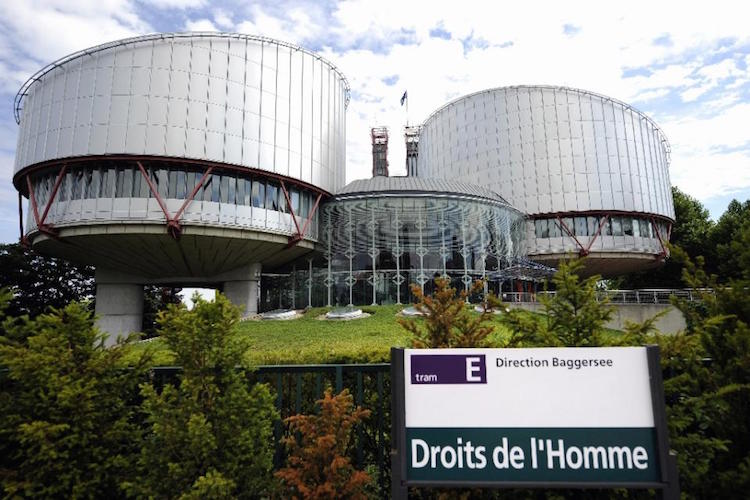Russia declared Tuesday its laws take precedence over decisions by the European Court of Human Rights
Russia says it can override European rights court rulings
AFP
Moscow (AFP) – Russia declared Tuesday its laws take precedence over decisions by the European Court of Human Rights (ECHR), a claim lawyers said could let Moscow snub Europe’s top rights tribunal.
The Constitutional Court ruling comes amid Russia’s increasing isolation from the West over the Ukraine crisis, with the opposition warning Moscow will now be able to selectively uphold international law.
Lawyers also said the ruling could provide Russia with an excuse not to implement a 2014 decision by the Strasbourg-based court to award shareholders of the now-defunct oil company Yukos 1.9 billion euros ($2.09 billion) in compensation.
“Russia’s participation in the international agreement does not signify rejection of state sovereignty,” said the ruling by Constitutional Court chairman Valery Zorkin.
“The Convention for the Protection of Human Rights and Fundamental Freedoms and the ECHR’s legal positions based on it cannot annul the precedence of the Constitution.”
If any determination by Europe’s top human rights court, which upholds the European Convention on Human Rights, is found to be in violation of Russian law, Moscow should not follow that ruling “to the letter,” according to the decision.
Zorkin argued the ruling was in line with the practice of top courts of European Union members such as Germany, Italy, Austria and Britain.
It came after lawmakers questioned whether Russia needed to comply with all ECHR decisions.
One of the lawmakers, Alexander Tarnavsky, said the Yukos case was one of the reasons for turning to the Constitutional Court.
“When we began examining all the legal practices in this case, it turned out that a number of decisions by the European Court of Human Rights were not being implemented on the European continent,” he said on radio.
The justice ministry reacted swiftly to the ruling, saying its future actions over the Yukos case would be in compliance with the Constitutional Court’s position.
Russian officials have long argued that the current practice of giving precedence to international law over Russian legislation goes against the country’s interests.
President Vladimir Putin’s spokesman said the Constitutional Court’s ruling was final.
“This is a decision that cannot be appealed, as far as I understand,” said spokesman Dmitry Peskov.
Russia joined the Council of Europe in 1996.
Since then, the European Court has been flooded with cases from Russia, with activists accusing the country of violating the European Convention on Human Rights.
-‘Elastic law’-
Russia’s opposition condemned the ruling, and some lawmakers cautioned against retreating from international law.
“The Constitutional Court paved the way for the selective application of international law in Russia,” leader of the Yabloko liberal party Sergei Mitrokhin said on Twitter.
“It will now be as elastic as our laws.”
“Before, it was assumed that judgements by the ECHR should be implemented, and with regards to compensations, they were implemented,” Sergei Pashin, a member of the Kremlin’s rights council and a former judge, told AFP.
“Of course, this is dangerous,” he said, referring to the ruling.
Tamara Morshchakova, a former Constitutional Court judge, warned that Russian courts will now be able to refuse reconsidering decisions that violate human rights.
“This makes the procedure of receiving compensation complicated for citizens,” Morshchakova, a commissioner of the International Commission of Jurists, a rights group, told AFP.
Putin has repeatedly said Washington and Brussels will not impose their will on Russia and warned Western governments against interfering in the country’s affairs.
Viktor Sheinis, one of the authors of the Russian constitution, accused the country’s judges of essentially serving political interests.
“People in the Constitutional Court are of course very experienced and skilled — they can prove what is needed politically, there are lots of examples of that,” he said on the radio.
Putin has promoted Russia as an antithesis to the West since returning to the Kremlin for a third term in 2012.
Moscow’s seizure of Crimea last year and its support for a separatist insurgency in eastern Ukraine has further frayed its ties with the West.

